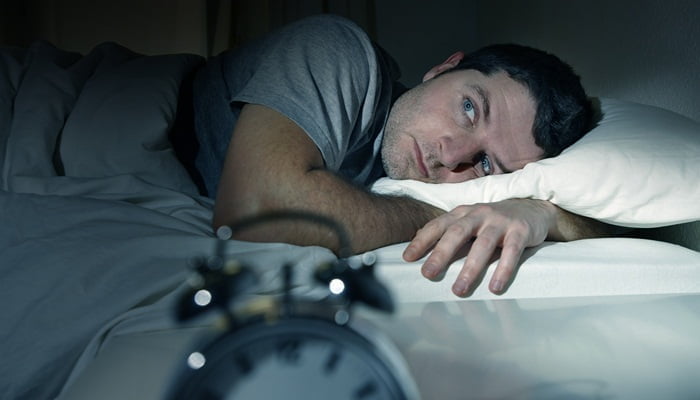Insomnia is a sleeping disorder that messes up with sleeping pattern, keeping an individual awake for long duration. Insomnia not only affect mood and energy, but it also alters physical activity and quality of life. Insomniacs develops weariness and laziness as their characteristic personality, feeling tired every second of the day.

Insomnia is a condition in which an individual faces difficulty falling asleep or staying asleep for hours. The person often gets up early and is unable to go back to sleep.
Insomnia can be acute or chronic
Acute insomnia is short-termed and for a time being. It is usually related to stress and is not linked to any other health condition. being jobless, exams days, death of a close relative, financial issues, divorce, family problems are some of the conditions in which individual develops this type. Acute type usually lasts for 1 week or two and then fades away.
Chronic insomnia on the other hand is long termed and related to a specific health condition like cancer, aids, depression, anxiety, hypertension, asthma etc and needs proper medical attention. Alcoholics and drug addicts also develop this kind. Moreover, some prolonged medications also causes chronic insomnia.
Read More: Depression, a silent killer for teens & young adults
Symptoms and Treatment for Insomnia:
Symptoms of insomnia are very prominent and include:
- less sleeping hours
- Difficulty falling asleep at night
- Waking up early
- abruptly waking up during sleep
- Tiredness throughout the day
- difficulty in concentration or remembering things
- troubled focusing
- obesity or weight loss
Treatment: Acute insomnia does not require any treatment and fades away with time. However, Chronic type is serious and could be worsened if overlooked. Treatment for chronic type includes sleeping pills as prescribed by the doctors , some behavioural therapy and proper clinical counselling.

Overcoming Insomnia – Ways to improve sleeping quality:
Overcoming insomnia is common and universally proven effective. There are certain routine steps you need to embrace, in order to make your sleep better. These include:
Consistent sleeping pattern:
Consistent everyday sleeping timings are proven fruitful in achieving qualitative sleep. You can initiate with setting alarms for the mornings and going to bed exact hour everyday. With time, try getting up naturally at selected time.
Bright Light exposure during daytime:
Our body has a circadian rhythm that works with light exposure. Bright light exposure during day time helps body in differentiating between day and night, allowing drowsiness at night time.
Proper bedroom environment:
Keep your bedroom dark and cool. Minimise exposure to noise, artificial lights and dust, Maintaining clean, quite, warm and relaxing bedroom environment promotes qualitative sleep.
Reduce caffeine, nicotine and alcohol consumption:
Nicotine and Caffeine are proven to be stimulants that keep you awake for long duration. Whereas Alcohol consumption late at night disrupts sleeping pattern, increasing sleep apnea and snoring.
Avoid cellphones before sleep:
Avoid using cellphones or e-books when you’re about to sleep as their lights can make it harder to fall asleep.
Melatonin supplements for insomnia:
Melatonin is a hormone that regulates sleep-wake cycle and is often used to treat insomnia. It plays significant role in maintaining body’s circadian rhythm. DO NOT USE SUPPLEMENTS WITHOUT CONSULTING A DOCTOR.
Additional steps in improving sleep quality and overcoming insomnia are:
- Reducing naps during day time
- Consuming dinner early
- Eating light snacks for dinner, avoid heavy meal.
- Take a shower before going to bed
- Exercise daily, but not before bed
- Read books before bed
- Don’t drink liquids when you’re about to sleep
- Get a comfortable mattress and pillow.
Sleep plays an essential role in maintaining physical as well as mental health. Therefore, proper and comfortable sleeping routine is necessary. Sleeping hours vary with age, normally every individual should get 7-8 hours of sleep everyday.
Read More: Calcium deficiency – prevalence of osteoporosis in Pakistani women
















